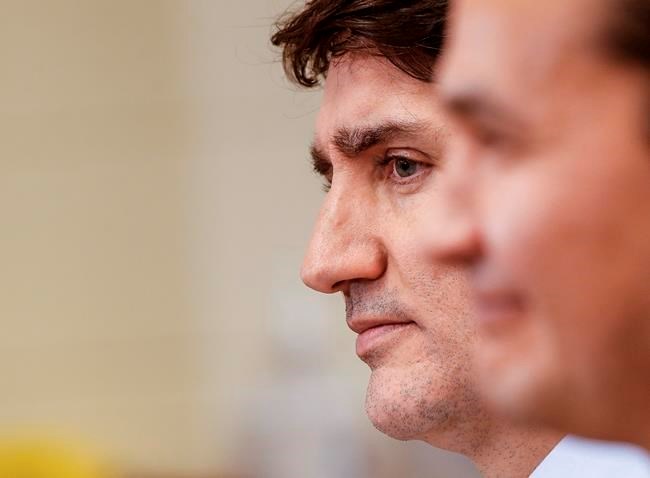OTTAWA — Diverse views in the Liberal party are a source of strength, Prime Minister Justin Trudeau insisted Thursday as questions persisted about caucus discord over the government's policy on the Israel-Hamas war.
"We have a large number of Muslim MPs. We have a large number of Jewish MPs," Trudeau said at a news conference in Winnipeg.
"The kinds of conversations that go on within our party are not always easy, but they reflect the diversity of conversations happening across the country."
Trudeau was responding to a question about a CBC News report detailing a leaked phone call between a constituent and Rob Oliphant, a parliamentary secretary to Foreign Affairs Minister Mélanie Joly.
In that call, Oliphant told the constituent that Israeli Prime Minister Benjamin Netanyahu is "hurting Israel," CBC reported.
He also criticized the government's communication around a genocide allegation against Israel at the International Court of Justice and its decision to pause funding for a UN agency as it investigates staff members accused of involvement in the Oct. 7 attack on Israel.
On Parliament Hill, NDP foreign-affairs critic Heather McPherson said Oliphant should be brave enough to say such things publicly. He told CBC he didn't say anything on the call he would not be willing to defend in public.
Asked whether Oliphant should resign, McPherson said the Toronto MP "is the only one saying the right things, albeit privately."
"I don't understand how this government can have people within their own caucus that are calling for us to adhere to international law, to adhere to the rules of humanitarian law, and the government's not listening," she said.
"It feels very much to me like a very Liberal thing to say one thing publicly and to say a different thing privately."
The prime minister did not specifically refer to Oliphant on Thursday.
World leaders, he said, are actively discussing how best to respond if Israel proceeds with a major offensive in the southern Gaza city where most of the population has taken shelter.
Trudeau said in French that he is "very preoccupied" by the situation as it unfolds.
The planned offensive in the city of Rafah was discussed in a conversation between the prime minister and a member of Israel's war cabinet on Thursday.
A readout of Trudeau's call with minister Benny Gantz said the prime minister expressed concern about the "severe humanitarian implications" for civilians in the area.
In a joint statement late Wednesday with the prime ministers of Australia and New Zealand, Trudeau said an Israeli military offensive into Rafah would be "catastrophic."
The message marked Canada's strongest language yet on Israel's conduct in the Gaza Strip, more than four months into its war with Hamas.
"There is growing international consensus. Israel must listen to its friends and it must listen to the international community," the statement said.
"The protection of civilians is paramount and a requirement under international humanitarian law. Palestinian civilians cannot be made to pay the price of defeating Hamas."
Still, McPherson said she thought the statement was "very watered down" and by not doing more, "Canada is potentially complicit in a genocide."
The war began when Hamas militants burst through Israel's formidable defences on Oct. 7 and rampaged through several communities, killing some 1,200 people and taking another 250 hostage.
More than 100 of the captives were freed during a ceasefire last year in exchange for 240 Palestinian prisoners.
Israel responded to the Oct. 7 attack by launching one of the deadliest and most destructive military campaigns in recent history.
Officials in the Hamas-controlled Gaza Strip say more than 28,000 Palestinians have been killed.
Four-fifths of the population have fled their homes and a quarter are starving amid a worsening humanitarian catastrophe. Large areas in northern Gaza, the first target of the offensive, have been completely destroyed.
This report by The Canadian Press was first published Feb. 15, 2024.
— With files from The Associated Press
The Canadian Press




